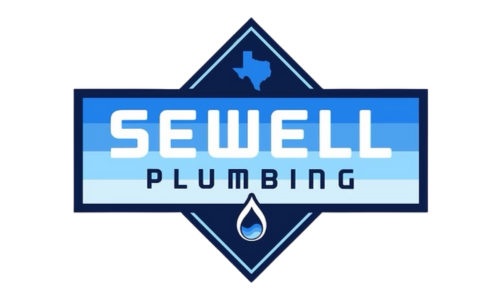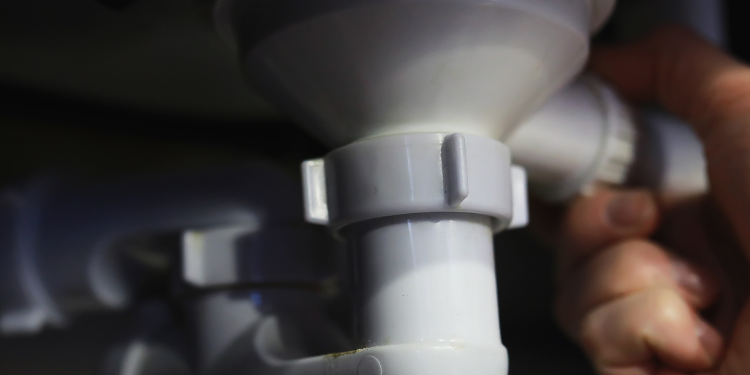The plumbing system is a complex network that works quietly in the background, ensuring your home’s safety and functionality. One of the most important components of any plumbing system is the plumbing trap. In McKinney, Allen, and Frisco, Texas, plumbing traps play a crucial role in maintaining sanitary conditions, preventing foul odors, and keeping harmful gases out of homes. Knowing more about these vital pieces of plumbing is key to maintaining an efficient and safe system.
Key Takeaway: Plumbing traps are essential in blocking sewer gases, preventing leaks, and maintaining the health of your plumbing system.
What Are Plumbing Traps and Why Are They Important?
Preventing Sewer Gases from Entering the Home
One of the primary functions of a plumbing trap is to block sewer gases from entering your home. In homes around McKinney and Allen, TX, this is crucial, as sewer gases not only smell unpleasant but can also pose a health risk. Plumbing traps create a water seal that effectively blocks these gases, keeping your home environment clean and safe.
Trapping Debris to Avoid Clogs
Another significant role of plumbing traps is to catch debris that flows down the drain, such as food particles, hair, or soap scum. These materials can cause clogs in the pipes, leading to slow drainage or backups. The trap is positioned in such a way that it prevents this debris from going deeper into the plumbing system, where it would be much more difficult to remove.
Supporting Leak Detection
When plumbing traps are working effectively, they help prevent leaks in your system. A dry or malfunctioning trap, however, can lead to water leaking through your drain pipes. Early leak detection can save you from expensive repairs. In areas like Frisco, TX, where humidity can cause water damage to homes, the role of plumbing traps in preventing leaks becomes even more vital. Learn more about how Sewell Plumbing helps maintain leak-free plumbing systems here.
Types of Plumbing Traps and Their Applications
P-Traps in Sinks and Showers
P-traps are the most common type of plumbing trap, named for their distinctive “P” shape. They are typically used in sinks and showers. The P-trap holds water, which acts as a barrier, preventing sewer gases from entering your home. Regularly checking and cleaning the P-trap can prevent clogs and ensure smooth drainage.
S-Traps in Floor Drains
S-traps are similar to P-traps but have a different configuration, making them more suitable for floor drains. Many homes in the McKinney and Frisco area use S-traps in basements or laundry rooms. While effective in blocking gases, S-traps can sometimes suffer from siphoning, which can lead to the loss of the water seal. This is why professional installation is crucial for ensuring their proper function.
Drum Traps in Older Homes
Drum traps are found in older homes, particularly in bathtubs. Instead of the curved design of P- and S-traps, drum traps are cylindrical, resembling a drum. Though still functional, many plumbers recommend replacing these with modern alternatives, as they are more prone to clogging and can be harder to maintain. If you’re considering a bathroom renovation in the Allen area, replacing outdated drum traps with modern P-traps could improve your system’s efficiency.
Common Issues with Plumbing Traps
Dry Traps Causing Odor Issues
A dry plumbing trap can allow sewer gases to escape into your home. This is especially common in rarely used fixtures, such as guest bathrooms or basements. Homeowners in Frisco, TX, often report this issue during the summer months when heat causes water in the trap to evaporate faster. Simply running water through these fixtures periodically can help maintain the water seal.
Leaky Traps Leading to Water Damage
A leaky trap can cause significant water damage over time, especially if it goes unnoticed. For homeowners in Allen, TX, where the climate can sometimes contribute to humidity issues, it’s essential to keep an eye out for leaks in your plumbing traps. If you notice any signs of water damage under your sink or near drains, it’s a good idea to reach out to a professional plumber for inspection and repair.
Clogged Traps Slowing Drainage
Clogs are a common issue with plumbing traps, especially in kitchen sinks, where grease, food particles, and soap can accumulate over time. Regular maintenance and cleaning of your traps can help prevent slow drainage and other related plumbing issues. If you’re noticing slow draining water in your kitchen or bathroom, it may be time to clean your plumbing trap or contact a plumber.
How to Maintain Plumbing Traps for Long-Term Efficiency
Regular Cleaning and Maintenance
Regularly cleaning your plumbing traps is key to avoiding clogs and maintaining a healthy plumbing system. In homes throughout McKinney, TX, routine maintenance is an easy way to prevent major issues from occurring. Most homeowners can clean their traps with basic tools, but for more complex systems, professional help may be needed.
Professional Inspection and Leak Detection
While homeowners can handle basic maintenance, professional inspections are recommended to ensure everything is in working order. A professional plumber can detect any underlying issues, such as leaks or cracks, that may not be visible. In Allen and Frisco, TX, leak detection services from professionals like Sewell Plumbing ensure that your plumbing system is working efficiently.
Replacing Outdated Traps
Older homes in the McKinney and Frisco area may still have outdated drum traps or S-traps that are no longer efficient. Upgrading to modern plumbing traps like the P-trap can improve your home’s plumbing efficiency and reduce the risk of clogs or leaks.
Answering Common Questions
What should I do if my plumbing trap is clogged?
If your plumbing trap is clogged, you can try removing and cleaning it yourself. However, for tougher clogs, it may be best to call a professional plumber to avoid damaging the system.
How often should I clean my plumbing trap?
For most homes, cleaning the plumbing trap every few months is sufficient. However, if you notice slow draining or odors, cleaning the trap may be necessary sooner.
Why does my plumbing trap smell bad?
A foul smell from your plumbing trap could indicate that the water seal has evaporated, allowing sewer gases to escape. Running water through the fixture should solve the problem.
Water Quality and Plumbing Traps
Water quality can significantly impact how plumbing traps function. Hard water, common in McKinney, TX, can cause mineral buildup in traps, leading to clogs. Using water filters or water softeners can mitigate these issues. For more information on how water filtration can improve your plumbing system, you can read about water purification here.
Renovations and Upgrading Plumbing Traps
If you’re renovating your home, upgrading your plumbing traps is an excellent way to improve your plumbing efficiency. Many homeowners in Frisco, TX, opt for renovations that include replacing old plumbing systems. Sewell Plumbing can help with any renovation project that involves plumbing upgrades.
Contacting a Professional for Trap Maintenance
If you’re experiencing issues with your plumbing trap or need professional advice, don’t hesitate to contact Sewell Plumbing. Whether it’s maintenance, repairs, or replacements, professional help ensures your plumbing system functions smoothly. Serving McKinney, Allen, and Frisco, TX, Sewell Plumbing is here to help with all your plumbing needs.







